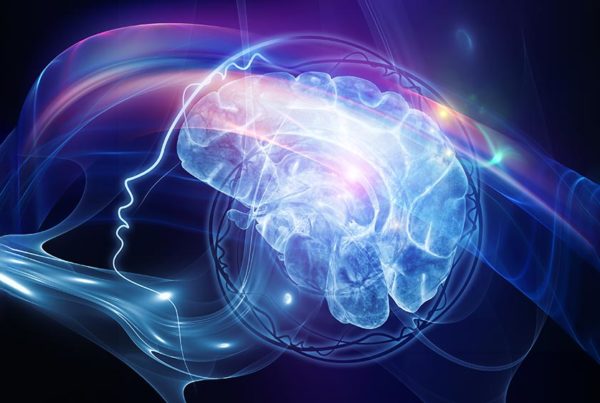
Many assume that fasting is a healthy activity. In some cases this may be true, but fasting can also be deadly. Ironically, we don’t have to forego healthy food to reap the benefits.
Fasting is cool. It has been for centuries, and that’s a key reason many people try it. The trend keeps coming and going. It’s difficult to say why there is such a lure; perhaps it’s the perception of discipline, the pain, the search for some mental or physical gain.
It’s difficult to answer the simple question of whether fasting is healthy because clear definitions are lacking. Confusion is a common denominator. Animal studies of fasting, versus those with humans, have different definitions and results. To summarize fasting for humans, it could be stated that common definitions include complete fasting, a state of no food, only water. The duration varies, and can be short, moderate or long periods of time. Intermittent fasting also is part of this model.
One key to understanding fasting is to first define what exactly it is — the abstinence of food, nothing but water. It’s sometimes called “periodic starvation.” But modified definitions come and go with the trends, sometimes conveniently selecting what is included or removed from a fast. The result is such things as juice fasts, or avoiding animal or dairy foods, or even alcohol. The various forms of fasting are sometimes even considered a “diet.”
Fasting can also be defined as an extreme form of dietary restriction, which entails the abstinence from all food, but not water, in a chronic manner as intermittent fasting or periodically as cycles of prolonged fasting lasting two or more days.
It’s clear who should avoid fasting. This includes children, pregnant women, the elderly, and those with cardiac and metabolic conditions.
Dangers of Fasting
Part of the problem in studying fasting’s effect on health is the inconsistent models used by people around the world. Scientific scrutiny of fasting often reveals potential negative health effects. Fasting can cause problems similar to shift working, which is associated with a wide range of disorders and diseases, due to disruption in the HPA (hypothalamic-pituitary-adrenal) axis and resulting hormone and autonomic imbalance.
A variety of unhealthy genetic changes can also occur during fasting.
Since various forms of fasting are popular in different religions, it creates a population of subjects for scientists to measure its effects. A recent study (Ajabnoor et al.) showed that during the fasting month of Ramadan, practicing Saudis develop severe disturbances in circadian rhythm, impairing sleeping, elevating the stress hormone cortisol, with increased chronic inflammation and insulin resistance. This also was accompanied by unfavorable cholesterol and triglyceride levels. Fasting may help explain the increased prevalence of overweight and obesity in Saudi Arabia — with overfat prevalence that exceeds 90 percent. This problem can lead to skyrocketing rates of cardiac and metabolic disorders, including Type 2 diabetes.
Many people are unable to fast for even short periods during the day without creating a biochemical stress. While waiting too long between meals, this stress can make some people dangerously hungry, weak and otherwise physically and mentally impaired. Forcing this situation with the notion that it will somehow help metabolism can just worsen it.
While the notion of resting the gut from a prolonged fast may seem logical, it is often done at the expense of losing the gut’s most important nutrient: glutamine, the primary fuel to keep the gut working well, especially for the absorption of nutrients. So shorter fasting for gut health makes sense, best done during the night (as mentioned below).
In another study (Brandhorst et al.), it’s emphasized that fasting could cause adverse effects that include bodywide dysfunction and even malnutrition, particularly in older and frail subjects.
Benefits of Fasting
The benefits of fasting based on scientific studies are scarce despite centuries of use. An important issue about studies showing health benefits of fasting is that it usually only includes people who are healthy. Herein lies a key fasting factor: Don’t fast unless you are healthy.
In addition — and counterintuitively — we don’t necessarily have to avoid eating to get the benefits of fasting. That’s right, you can get the same benefits without starving yourself.
Studies show that periodic fasting can cause a healthy decrease in blood glucose and insulin, improve immune function, and reduce excess body fat and weight. These are the keys to reducing the risk of cardiovascular disease, cancer and diabetes, among other chronic illness.
An important benefit of fasting is the increased levels of ketone bodies, which trigger various health benefits. This state of nutritional ketosis can be reached by eating healthy foods that reduce blood glucose and insulin — essentially obtaining all the great benefits, including ketosis, of fasting without the risks, and while maintaining nutrient balance. This is a type of “fasting” that everyone can do. It can occur without caloric restriction, without the risk of nutrient deprivation, and can have other systemwide benefits too, such as improvements in gait, reduced markers of aging, and cognitive function.
Use Food to Fast
Brandhorst et al. (2015) stated that the concerns about health impairment from fasting point to the need for dietary interventions that induce fasting-like healthy effects that minimize the risk of adverse effects, and the burden of complete food restriction. While that may sound complicated, it’s not.
Consider these two ways we can obtain fasting benefits while eating well and sleeping right:
- Eliminate junk food and find your optimal level of natural carbohydrate foods. This will typically increase fat-burning, and raise ketone levels. Very low carbohydrate eating will further raise ketones to a state called nutritional ketosis.
- The most effective food-free period is a daily 12-hour nighttime fast, when we sleep best. This can be done by finishing healthy eating in the early evening, then beginning the cycle again with a morning breakfast.
Rather than rely on science to tell us what’s good or bad about fasting, it’s best to find out on our own. Certainly avoiding food that causes significant negative impacts such as hunger, brain and body fatigue, poor physical performance is a step in the right direction. Eliminating these foods for an extended period of time — maybe even forever — can provide many of the health benefits of fasting without the possible negative consequences.
References
Ajabnoor GM, Bahijri S, Shaik NA, et al. Ramadan fasting in Saudi Arabia is associated with altered expression of CLOCK, DUSP and IL-1alpha genes, as well as changes in cardiometabolic risk factors. PLOS ONE. 2017;12(4):e0174342.
Brandhorst S, Choi IY, Wei M, et al. A periodic diet that mimics fasting promotes multi-system regeneration, enhanced cognitive performance, and healthspan. Cell Metab. 2015;2:86–99.
Persynaki A, Karras S, Pichard C. Unraveling the metabolic health benefits of fasting related to religious beliefs: A narrative review. Nutrition. 2017;35:14–20.








